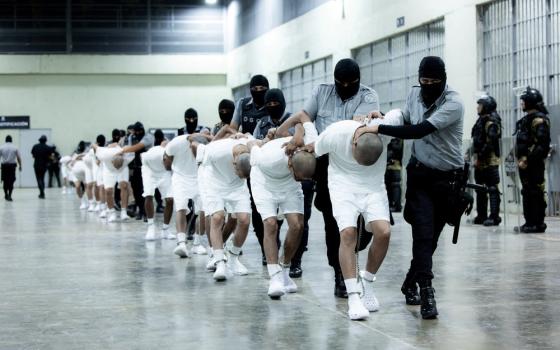Elizabeth Cady Stanton met Lucretia Mott at the World Anti-Slavery Convention in 1840 under difficult circumstances. Having traveled 3,000 miles from the United States to London, Mott and others arrived as delegates but were relegated to observer status and barred from voting. Why? Because they were women.
It was at this convention, that Stanton and Mott began dreaming about a women’s equality movement for the United States, one that would lead to a woman's right to vote.
As the Vatican's Synod of Bishops comes to a close this week, I think back to those women who were ushered into a balcony and barred from voting at a convention 175 years ago. Some things haven’t changed. At the synod on the family this month there were women observers, but not one woman was permitted to vote.
I believe Elizabeth Cady Stanton, the renowned suffragist, would have sympathized with today's women observers at the synod. She always believed that gender equality in religion was inter-dependent with gender equality in society. She encouraged women "to insist on her right to be heard in the councils of Church and State."
If Stanton were alive today, I imagine she would pick up her pen -- or laptop -- and write a few words to "educate" her fellow Christians towards change in the wake of the synod. "Educate" being her demure 19th-century word for a full-scale political campaign.
Her "educational" writing still resonates today. In the introduction to her collaborative book, The Woman's Bible, she wrote, "If the Bible teaches the equality of Woman, why does the church refuse to ordain women to preach the gospel, to fill the offices of deacons and elders, and to administer the Sacraments, or to admit them as delegates to the Synods, General Assemblies and Conferences of the different denominations?"
Good question, Elizabeth.
To those who challenged her work, Stanton wrote, "Others say it is not politic to rouse religious opposition. This much-lauded policy is but another word for cowardice. How can woman’s position be changed from that of a subordinate to an equal, without opposition, without the broadest discussion of all the questions involved in her present degradation?"
She firmly believed the words of the Bible that men and women were created in God’s image. "Thus Scripture, as well as science and philosophy, declares the eternity and equality of sex," says commentary in The Woman’s Bible.
In the midst of her busy schedule of lectures and political organizing, Stanton never gave up her quest for women's equality in the church. In 1902, her final year of life, she proclaimed in an article that "the canon law, with all the subtle influences that grow out of it, is more responsible for woman’s slavery today than the civil code."
She personally knew how religious views were used against women. In fact, Christian pastors were the most vocal opponents against female participation at the World Anti-Slavery Convention where Stanton first conceived of a women's equality movement.
It was at that convention where the Rev. Henry Grew, a delegate from Pennsylvania, stated, "The reception of women as a part of this Convention would, in the view of many, be not only a violation of the customs of England, but of the ordinance of Almighty God… ."
While most convention delegates decreed that women could not participate, there were some strong male allies. George Bradburn of Massachusetts was recorded as saying, "Prove to me, gentlemen, that your Bible sanctions the slavery of women -- the complete subjugation of one-half the race to the other -- and I should feel that the best work I could do for humanity would be to make a grand bonfire of every Bible in the Universe."
Gratefully, no such bonfire was necessary. The fire that did spark from that convention, however, was in the heart of Elizabeth Cady Stanton. While she is usually remembered for her secular political work, she was also a church reformer who knew that until women and men were equal in faith, they would not be equal in society. Her belief still resonates this month as the Vatican's male-only synod debated ideas about families -- ideas that have deep political implications, as well.
Meanwhile, next month marks the 200th anniversary of Stanton’s birth. I can think of no greater gift to her legacy than the women and men who persist in the quest for faith-based gender equality. "Votes for women" may have been the cry in politics, but in Elizabeth's heart it was also clearly a cry for the church.
[Nicole Sotelo is the author of Women Healing from Abuse: Meditations for Finding Peace, published by Paulist Press, and coordinates WomenHealing.com. She is a graduate of Harvard Divinity School.]
Editor's note: We can send you an email alert every time a Young Voices column is posted to NCRonline.org. Go to this page and follow directions: Email alert sign-up.




